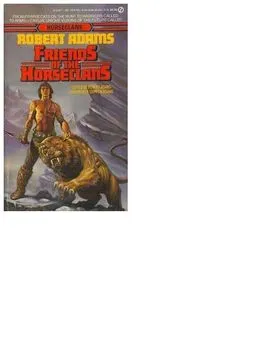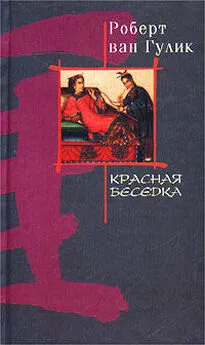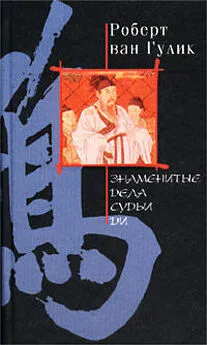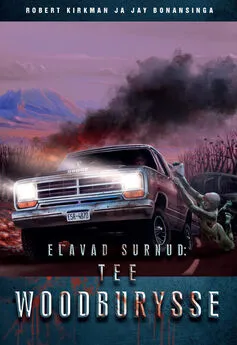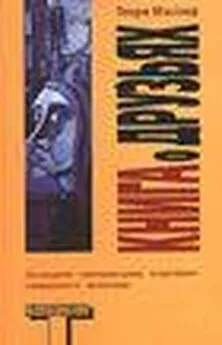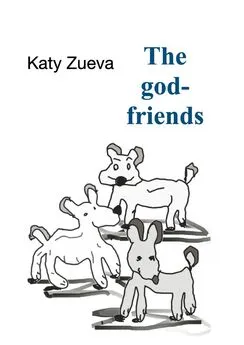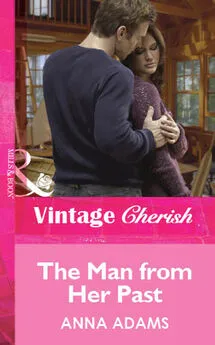Friends (2013) - Adams, Robert
- Название:Adams, Robert
- Автор:
- Жанр:
- Издательство:неизвестно
- Год:2013
- ISBN:нет данных
- Рейтинг:
- Избранное:Добавить в избранное
-
Отзывы:
-
Ваша оценка:
Friends (2013) - Adams, Robert краткое содержание
Adams, Robert - читать онлайн бесплатно полную версию (весь текст целиком)
Интервал:
Закладка:
At that same moment, seven huge, tawny felines were but just arrived in position to the rear of the cavalry reserve of the bandit army. They crouched within a tiny copse, their sleek bodies unmoving, their colors blending well with the dead leaves that covered the ground.
One of the prairiecats—for such they were, come south as part of the Horseclans force—meshed his mind with those of two others to gain sufficient strength for farspeak and beamed out, “We are where you said we should be. The horses cannot smell us . . . yet. But I fear the wind soon may shift . . . ?”
Strahteegos Thoheeks Pahvlos’ well-concocted plan of battle had to be severely altered. With the bandit army formed up in position, it became clear that in order to avoid having his center outflanked by the center of the enemy, he must either stretch his lines of armored pikemen to suicidal thinness or commit the unarmored pikemen of Ahzprinos—for the umpteenth time he cursed the old-fashioned, obstinate, obtuse officer and his failure to emulate the other two pike regiments.
At length, the strahteegos made what he felt to be the best of a bad situation. He extended the regiments of Hehluh and Bizahros to a depth of only six men, but then he ordered the first and second battalions of Ahzprinos’ regiment to form up two men deep immediately behind the armored regiments.
Of course, this left him damn-all reserve—one battalion of old-styleipikemen, the headquarters guard of heavy horse and a scattering of lancers—but it would have to do.
Nor was he formed up any too soon. Out from both wings of the bandit army came clattering the warcarts—barded to the fetlocks as they were, there was no way to determine just how heavily or fully the pairs of big mules were armored, only safe to assume that they were; three men stood in each jouncing, springless cart, two archers and a spearman; the man responsible for guiding the pair was mounted on the near-side mule, fully armored and bearing shield and sword or axe. The carts kept a good distance from each other lest the steel blades projecting from each wheelhub become entangled with another set or, worse, cripple a mule.
Pahvlos saw immediately that there were not enough of the armored warcarts to tempt even such an amateur as the bandit chief to send them head-on against the massed pikes and hope to get any of them back. Anyone knew that the cavalry on the wings could easily ride deadly rings around such slow, cumbersome conveyances, and that left only a couple of alternative uses for the archaic weapons: an attempt to drive between wing and center and take the pikemen on the flank or a series of passes back and forth across the front while raining the pikemen they assumed to be unarmored and shieldless with darts and arrows.
It was the latter. In staggered lines, the warcarts were drawn, clattering and bouncing, the length of the formations of pikemen, expending quantities of arrows for precious few casualties. As the first line of warcarts reached the end of that first pass and began to wheel about, however, they got an unexpected and very sharp taste of similar medicine to that they had been so lavishly dispensing. Chief Pawl Vawn of Vawn, commanding the left wing, treated the carts and mules to such an arrow storm that some quarter of the carts were unable to return to the raking of the pikelines. Nor did the carts receive any less from the Horseclansmen under Tomos Gonsalos on the right wing.
With it patently clear that the warcarts were doing no significant damage to his front, Strahteegos Pahvlos sent Thoheeks Portos’ heavy lancers out from the rear area and in a wide swing around his own right to deliver a crushing, crashing charge against the units of heavy horse and irregulars making up the left wing of the bandit army. That charge thudded home with a racket that could be heard even within the old warrior’s pavilion. The heavy lancers fought bravely for a few minutes after the initial assault, but then a banner went down and, with loud lamentations, they began to disengage piecemeal and withdraw. Sensing victory within grasping distance, the bandits’ entire left wing quitted their positions to stream out in pursuit.
And no sooner had the cavalry left their- assigned flank areas than up out of a brushy gully filed Sunshine, Tulip and Newgrass. Speedily, the cloth shroudings were stripped away, the heavy, unwieldy, metal-shod boxes lifted up onto the broad backs and strapped in place. Then the boxes were manned by the archers, Gil Djohnz and the other two were lifted by the elephants to the saddles just behind the domes of the huge heads, and those still gathered about on the ground affixed the last pieces of the pachyderms’ armor and uncased the broad- and heavy-bladed swords—six feet and more in length—each elephant would swing in the initial attack.
All of these preparations were well rehearsed and so took less than five minutes in the accomplishment, then the three huge beasts set out in line abreast at a walk which the trailing and flanking horsemen had some difficulty in matching for speed over the broken ground.
Much of Mainahkos’ “infantry” was no such thing, rather were the most of them a broad cross-section of civilian men impressed off streets at sword’s point and handed a pike or a spear before being hustled willy-nilly into an aggregation of similar unfortunates, then marched out to add depth to the pikeline. To these, the mere sight of the three behemoths fast bearing down upon them, swinging two -meetrah blades and supported by a horde of horsemen, was all that was needful to evoke instant panic.
Pawl, Chief of Clan Vawn, farspoke but a single thought, “Now, cat-brother!”
With bloodcurdling squalls, the seven mighty cats burst out of the tiny copse and sped toward the ranks of the now-mounting cavalry reserve. Broadbeaming hideous mind-pictures of blood and equine death, never ceasing their cacophonies of snarls, growls, squalls and howls, the felines rapidly bore down upon the horses and men.
The harried, wounded commander of the warcarts had never bdfore heard of such a thing! Leaving their secure position, the entire four-hundred-yard length of the enemy pikeline was advancing, moving at a brisk walk, their pikes still presented—an array of winking steel points that projected well ahead of the marching lines. The miserable infantry simply did not advance against armored warcarts! Basically a less than imaginative man, the commander did the only thing he could just then think to do—he headed back to whence he and his force had come.
But before the carts could reach their objective, their own infantry had boiled forward, out of formation, to block the way. Deeply contemptuous of footmen at even the best of times, the commander led his survivors in carving a gory path through these up unto the moment that a terrified man smote him such a blow with a poleaxe as to hurl him to the ground just at the proper time and place to be decapitated by the sharp, blood-streaked, whirling blades projecting from the hub of his own warcart.
* * *
Portos and his squadron abruptly turned, raised the “fallen” banner and hacked a good half of their pursuers out of the saddle before said pursuers broke and fled. At that juncture, Portos halted his force, formed them up and directed them at the nearest protrusion of the roiling, confused mass of men that had formerly been the enemy’s center.
But the projection had recoalesced with the main mass by the time the heavy horse reached it, so quick-thinking Portos rode on into the chaos that had lately been the rear areas of the bandit army. After leaving half the squadron to interdict the road leading to the city, the grim officer used the other half to strike the rear and flank of those units still guarding the right wing of the bandit army only bare moments before those units were assaulted all along the front by Chief I'awl Vawn’s Horseclansmen.
With the precipitate retreat of the warcarts, Strahteegos Thoheeks Pahvlos ordered the drums to roll the signal, whereupon the pikemen dropped their shields, lowered their long, heavy pikes to lowguard-present—waist-level—and increased their pace to a trot, though maintaining proper interval and formation up to the very moment that their steel points sank into soft flesh or grated upon armor and bone.
Although the slaughter continued on for some hours more on that bloody field, the charge of the pikemen had ended the Battle of Kahlkopolis.
A Vision of Honor
by Sharon Green
Sharon Green writes: “I’ve been reading science fiction since the age of twelve, began writing it even before then, but never got serious about my writing until five years ago. 1 read a speech of Robert Heinlein’s that said. ‘Don’t talk about it, do it!’ So 1 did. Once turned on, it hasn’t stopped yet.” Sharon is the author of three series and two singleton books, and this is her second short story to appear in an anthology edited by Robert Adams.
Late-aftemoon sunlight spread thickly through the wide windows of the large stone room, creating pools on the flags through which the five laughing young people strode. Four men and a girl they were, all clearly kin, all nearly of a size save for the girl, who was half a head shorter than the smallest. The clothing they wore was richly stitched and patterned, well cut from costly bolts of brightly colored cloth, dress-up for those of noble blood and just short of brand-new. Not many came to their father’s house who merited such a peacock parade, and their laughter stemmed from looking at each other in linen and silk and velvet rather than in leather and scale or plate. They hadn’t been told who the visitors were, and their laughter was half eager curiosity.
“It may well be some other count of Father’s acquaintance who comes seeking a strong husband for his eldest daughter,” one of the four young men offered, his handsome face creased into a grin. “His sons will have gone off to war and not survived, and now he must have a son-in-law to rule after him. The girl will be stunningly lovely, and the count will have heard of my exploits in the Middle Kingdoms, and will therefore ask me to accept her. ’ ’
“She will more likely be fat and ugly, and her father will ask me, little brother,” said a second, his own laughter joining that of the others. “Surviving the wars in the Middle Kingdoms is scarcely a guarantee that the following peace at home will also be survived—or filled with pleasure.”
“1 feel a great deal of relief that my company has already been recalled from the taverns where they spend their leave,” said a third, eldest of the four and fully as amused. “As we depart in two days to seek our next commission, there will be no need for me to give fanciful excuses to our father’s guests as to why it would be impossible for me to wed his skinny, homely daughter. Should you wish to join me, brothers, my company will welcome your swords.”
“And what of my sword, Dharrehn?” the girl asked with an impish grin, fully sharing the mood of the men. “Although there are no sons with which / might be threatened, it would please me to ride with your company. I have no exploits in the wars to boast of as do you and our brothers, and for that reason feel deprived.”
Captain Dharrehn Cambehl paused to look at his sister, considering the girl he had discovered when he had returned with his company to his father’s city to allow them a time of well-earned leave. Although she wore an ankle-length brown woolen shift with yellow silk tunic beneath out of dclerence to their father’s wishes, she could most often be found in leather and chain mail, armed and armored nearly as well as her brothers, the skill she had somehow acquired clearly in evidence while she trained. Had his shaven head been allowed to sprout, the hair would have been a light brown similar to her now neatly combed tresses, the eyes he inspected her with a pale blue just like her own. Saucy and harmless-looking and nicely well-rounded, he thought, and how few of his men would find fault with that.
Читать дальшеИнтервал:
Закладка:
